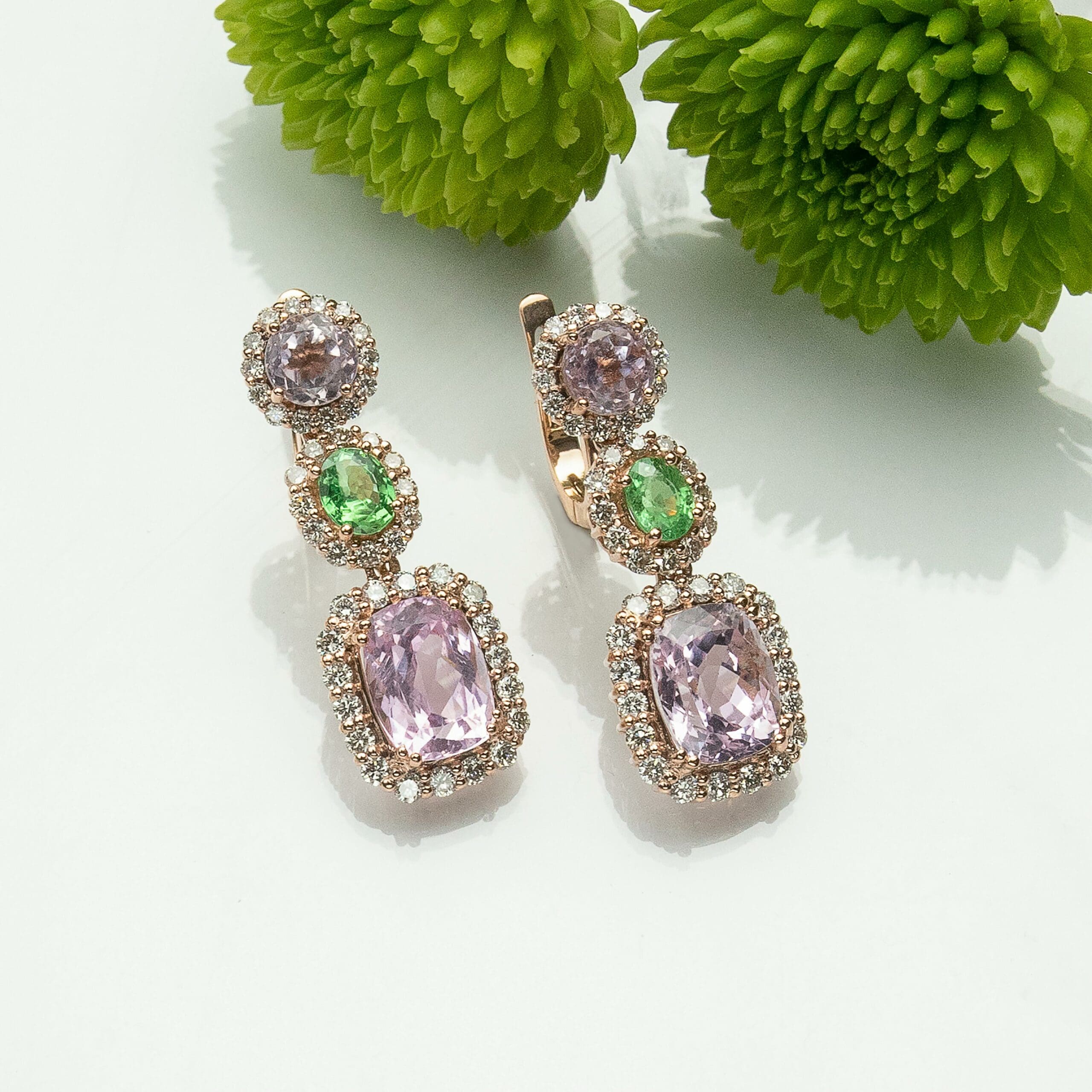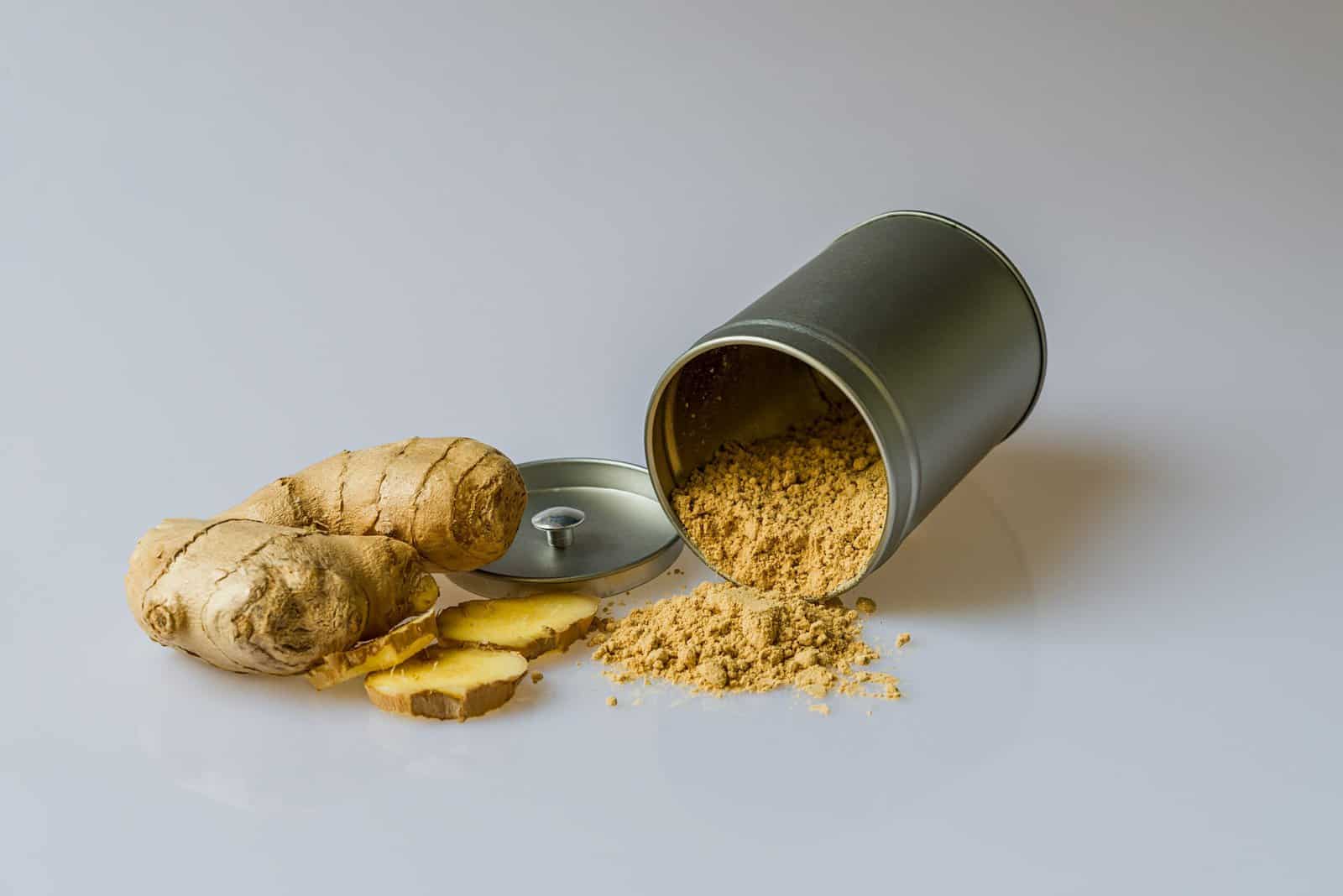
Ginger Facts: 27 Reasons to Add it to Your Diet
Ginger is famously known as powder, but in fact, it is a plant that grows in the soil. It comes from the Zingiberaceae family. Although it is indigenous to Tropical Asia, it is also grown in several other places of the world, including Australia’s tropics, some sections of the United States, India, China, Jamaica, Brazil, and West Africa.
Ginger is also a perennial plant with a sharp, pungent taste that intensifies as the plant matures. It is also one of the most consumed spices in the world.
Over thousands of years, it has also been used to treat many diseases, and in this field, fresh ginger, which is also called green ginger, is the best type in reducing infection, as it retains all of its natural chemical compounds while dried ginger loses some of these compounds during the two grinding processes. While dried ginger loses some of these compounds during the grinding and drying processes
Ginger is a tropical plant. It is characterised by a thick, earthy stem (rhizome) with nodules on its surface. It extends below the soil surface. It grows above the ground to a height of about 30 cm. It bears a group of long, ribbed green leaves and white or green-purple flowers.
It is considered one of the natural spices, and it is known all over the world for its pungent aroma and pungent taste. It is generally available in two forms, mature or medium-ripe. The mature one has hard skin that must be removed. As for the less ripe one, it does not require peeling and is usually available in the market.
It contains a broad collection of powerful antioxidants, many minerals, proteins, vitamins, and volatile oils, such as gingerol (considered anti-thrombotic) and anti-inflammatory in all its forms, including inflammatory diseases such as asthma, joints, colitis, and migraine).

How to use it?
Unpeeled and peeled dried ginger is widely available in the market, as well as in the form of powder and flat pieces, in addition to fresh, soft ginger, which is found in some shops. There are also ginger oil, capsules, and pharmaceutical tablets of ginger in complementary food stores and pharmacies.
It is consumed by cutting 5 cm of its roots into slices and adding a cup of water to it, leaving the mixture on low heat for ten minutes, removing the slices, filtering the remaining water, and drinking it. Or put a teaspoon of its powder in a cup of boiling water, then leave for five minutes and drink. Its oil is used for massage or massage in diseases of the joints and bones.
It can be used in many different ways in food and drink, as its rhizomes or horizontal stems can be eaten as fresh or cooked vegetables, or used as a kind of seasoning and condiment in flavouring foods, or fresh ones can be used to make ginger tea. The leaves can also be used in food or used as part of traditional medicine. In addition, some people use its supplements due to the potential health benefits it provides.
Ginger products and their benefits
- Ginger Oil
Its oil is extracted in several ways, but the best kind is the one that is extracted from the whole, unpeeled rhizome and is distinguished for containing the gingerol compound, which is responsible for most of its benefits.
2. Ginger Vinegar
Natural vinegar can be made from green ginger, but no research has been done to determine whether it has any advantages.
3. Ginger Jam
Its jam can be made with fresh ginger and eaten in a variety of ways. Other types of fruits can be used to sweeten the flavour because some individuals, especially young children, may not enjoy their pungent taste.
Benefits of Ginger
- Its benefits for diabetes
It may have some potent anti-diabetic properties, as evidenced by a study showing that people with type 2 diabetes who consumed it daily for a period of 12 weeks saw reductions in their levels of fasting blood sugar and the HbA1c Test. However, the doctor may need to adjust the dosages of diabetes medications to avoid conflict with it, as they can raise insulin levels.
Although it is considered an excellent substitute for salt, which, when ingested in excess, can raise blood pressure, it does not indicate that it should be completely avoided. Instead, it can be consumed with a doctor’s approval. It can be added to enhance the flavour of drinks and foods as a kind of healthy seasoning or used entirely to flavour and use its powder in baked goods. Still, the consumption of its manufactured products, such as sugary drinks, may not bring the desired benefit to the patient as much as it may increase the rise in sugar.

2. Its benefits for allergies
In addition, eating it or adding it to food is a healthy and safe way to benefit from its anti-inflammatory properties. Still, its supplements should be consumed with caution as they may increase the risk of heart disease. It is one of the natural remedies that can be used to treat seasonal allergies and sinusitis. A laboratory study showed that it could modify the immune response to infections associated with allergic asthma, suggesting that it may be one of the possible ways to alleviate this problem.
3. Its benefits for the heart
As it may lower blood pressure and cholesterol, soothe heartburn, lessen the likelihood of heart attacks, and increase blood circulation, it can help avoid cardiovascular illnesses. According to a different study, it also has an anti-platelet and antioxidant impact.
Further research is required to establish this effect in humans, as the majority of these studies were only conducted on animals and in laboratories. It should be noted that individuals with heart disease should exercise caution while consuming it because it is thought that it may make certain of their conditions worse. It is also recommended to speak with a doctor before using it.
4. Its benefits for blood pressure
One of the plant species that may help lower blood pressure is ginger. A study found that raw ginger extract may be able to lower people’s arterial blood pressure, and another study linked daily consumption of it to lower high blood pressure. This reduction and the group of rats used in the experiment were based on a dose of 0.3 to 3 milligrammes per kilogramme.
Also, taking ginger supplements lowers both systolic and diastolic blood pressure. Nevertheless, it may help lessen sodium and water retention, which lowers blood pressure.
The need for caution while combining it with pressure-lowering medications with the same function should be recognised. This could result in a severe drop in blood pressure. Thus, a doctor should be consulted for such cases.
5. Its benefits for the kidneys
One laboratory study indicated that it is possible for the ginger extract to improve kidney function, reduce free radicals, and may help inhibit inflammatory transmitters, restore the pathological tissue structure of the kidneys to their normal state, and thus improve the condition of renal insufficiency resulting from carbon tetrachloride, CCl4.
6. Its benefits for nerves and memory
Some studies conducted on animals indicate that it can help inhibit inflammatory responses that occur in the brain, thanks to the plant chemicals and antioxidants it contains, and these infections, especially chronic ones, and with the presence of Oxidative Stress, can accelerate the ageing process.
It is also believed to be a factor in cognitive impairment associated with ageing and Alzheimer’s disease. In addition, a study showed that ginger extract could improve the capabilities of cognitive processes and attention, in addition to improving memory and reaction time in women who are middle-aged and younger, but it may cause side effects for them.
The researchers indicated that ginger contributed positively to the effect on the brain of a group of diabetic rats and the possibility of using it to reduce brain damage as a result of diabetes, as ginger helped reduce levels of oxidative stress and inflammation and reduce apoptosis processes.
7. Its benefits for coughing
Among some common symptoms that cause discomfort while catching a cold is dry coughing, as it creates some bothersome conditions, and treating it can be challenging. Additionally, a body of research has shown that ginger can help relieve irritation that coughing may cause in the throat and respiratory tract because it has anti-inflammatory properties and can reduce oxidative stress. It is known that ginger roots contain specific compounds that can relax the muscles that narrow the respiratory tract.

8. Its benefits for pregnant women
It is one of the plants that may affect the morning sickness that a woman may experience during pregnancy, and according to what was shown by a systematic review in which 1278 pregnant women participated from 12 different studies, ginger can significantly reduce symptoms of nausea, but it did not affect in their bouts of vomiting.
It has also been noted that it may affect more slowly or less efficiently compared to some drugs used for this purpose, and the importance of avoiding the use of any medications or herbs should be noted before consulting a doctor, especially during pregnancy. Although there are differing views on how safe it is to use ginger, it is generally believed to be safe to consume during pregnancy.
According to some research, using it to treat morning sickness does not endanger the foetus. Although only one miscarriage was reported in the twelfth week of pregnancy, it is thought that using ginger in high doses may increase the risk of miscarriage. For a woman who used it to treat morning sickness, there is also concern that using ginger may affect the sex hormones of the foetus. It should be emphasised that although it has not been proven, there is fear that its use may disrupt the foetus’ sex hormones. There is still a need for additional investigation.
It is advised to avoid consuming ginger when the date of childbirth approaches, as it may increase the risk of bleeding, and despite these cases, ginger does not increase the possibility of premature birth nor the possibility of giving birth to a child with low weight, and the risk of significant fetal deformities is equal in women who They use ginger with the normal percentage of those who do not use it, which ranges from 1% to 3%, but a doctor should be consulted before using ginger.
9. Its benefits in breastfeeding
Because there is insufficient knowledge about ginger’s level of safety during lactation, it is preferable to avoid using ginger during that time. Despite this, some cultures immediately feed it to new mothers because they think it can serve as galactagogues and increase milk production. They also believe it can help with postpartum wound healing, although there isn’t enough research to back this up.
10. Its benefits for children
It should not be given to youngsters under the age of four. As for teenage girls, it is considered safe to eat it at the beginning of the menstrual period, but for a period of 4 days as a maximum.
11. Its benefits in menstruation
Possibly Effective Reducing menstrual pain: it can effectively reduce menstrual pain, as a study published in 2009 showed that giving a group of women 250 milligrams of ginger capsules four times a day could reduce these pains. According to some studies, ginger may have an impact comparable to that of the same amount of mefenamic acid or a dose of 400 mg of ibuprofen four times a day in reducing dysmenorrhea before or during menstruation.
12. Its benefits in reducing dizziness:
It can significantly reduce vertigo, although ginger may not effectively reduce motion sickness. Some research indicated that consuming ginger 4 hours before travel, as a maximum, does not reduce the incidence of motion sickness. Still, it can lead to a feeling of improvement as a result of its use. At the same time, one study showed that it could affect the reduction of motion sickness and anxiety disorders associated with the stomach.
13. Its benefits in reducing indigestion:
It contains a group of chemical compounds that contribute to the process of digestion in general and helps to calm stomach pain. One of the primary signs of indigestion is delayed stomach emptying. Ginger powder can speed up the stomach-draining process by 50% when taken before a meal in a dose of 1.2 grams.

14. Its benefits in reducing joint pain:
Research has shown that eating a specific product containing ginger for eight weeks reduces joint pain by 37%, but the effect of the product was limited to that, as it did not improve joint function nor reduce its stiffness.
15. Its benefits in reducing the common cold:
Several of the molecules found in ginger may help prevent colds and alleviate some symptoms, including fever, discomfort, and coughing. In addition, it helps to feel warm, and ginger can help the body sweat and reduce infection.
16. Its benefits in reducing some symptoms of osteoarthritis:
It can positively affect osteoarthritis in addition to the possibility of the effectiveness of ginger supplements and another type of herb in reducing knee inflammation and pain when consumed for a period of 30 days.
17. Its benefits for skin and skin:
Regarding its advantages for the skin, it lowers the impact of free radicals, which are produced by the body as a result of exposure to pollution, excessive sun, and impure winds, which in turn promote skin pigmentation, sagging skin, and wrinkles, which makes the person look older. It does this by containing an antioxidant substance (gingerols), which inhibits the effects of free radicals. Free radicals also damage collagen, a major structural protein in the skin, and can cause skin diseases.
18. Its benefits in anti-ageing skin:
By enhancing blood circulation, eliminating skin pollutants, and supplying the skin with beneficial and healthy nutrients, ginger contributes to the skin’s beauty. In order to maintain youthful skin, ginger has antioxidant components that shield the skin from free radical damage. Over 40 different substances keep the skin vibrant and younger-looking by preventing the onset of ageing symptoms.
19. Its benefits as a sunburn treatment:
The look of the skin is returned to its normal contour, and ginger also aids in healing skin burns. Ginger also helps in uniting skin colour. Sometimes, the skin’s colour changes, causing the formation of white spots or the presence of spots lighter or darker than the natural skin colour. Ginger has the ability to stimulate the secretion of melanin pigment and thus unifies the colour of skin.
20. Its benefits in eliminating acne and spots:
It promotes skin cleanliness and gives it a smooth, flawless complexion while eradicating the germs that cause acne and preventing its occurrence on the skin, making it an efficient cleanser and disinfection for the skin.
21. Its benefits as a skin smoother:
It possesses powerful antioxidant and skin-revitalizing effects that support youthful skin, smooth and glowing skin, and protection from age-related indications of ageing.
22. Its benefits in relieving headaches:
Fresh or ground ginger can help relieve migraine symptoms, ranging from discomfort to exhaustion. This is useful for children who suffer from this type of headache.
23. Its benefits in reducing cholesterol levels:
Mice on a high-fat diet can lower their blood cholesterol levels by taking ginger supplements. More research is still required to establish this effect in people.
24. Its benefits in treating ulcerative colitis:
It does not have an impact on a person’s quality of life, frequency of urine, gas, or stomach discomfort, but it can help reduce the condition’s overall pathological activity.
25. Its benefits in reducing nausea and vomiting:
It may effectively relieve vomiting and nausea that may occur after surgeries.
26. Its benefits for hair:
Ginger oil encourages the growth of hair follicles by enhancing and accelerating blood circulation, which in turn causes an increase in hair follicle size. Ginger also contains fatty acids that are good for thinning hair.
It is rich in vitamins, phosphorus, and zinc, which repair dry, broken hair and increase the health and strength of the strands. Ginger roots aid in stopping hair loss and improve its strength, health, and beauty. Ginger has antiseptic characteristics that eliminate dandruff and stop it from returning to the scalp, which is a frequent scalp issue.
27. Other benefits:
It may affect several other conditions, but more studies are needed to confirm its effectiveness, including anorexia, cholera, and flu.
Does ginger help burn fat?
Although there are no studies proving that ginger helps with fat burning, this type of herb is likely to be linked to weight loss and can also help in reducing the risk of heart disease and other negative impacts of weight increase because of its antioxidant and anti-inflammatory characteristics.
A systematic review published in 2019 that included 14 different studies indicated that ginger and its nutritional supplements could significantly reduce several indicators, such as body weight, Waist-To-Hip Ratio, and hip circumference, in people. Those who are overweight or obese while could not influence the body mass index.
A lab experiment revealed that ginger supplementation helped lower weight in rats fed a high-fat diet by regulating blood sugar levels. Moreover, ginger powder is said to improve fullness and decrease hunger when a small amount is consumed.
It has been shown that eating ginger has contributed to reducing the feeling of hunger and enhancing thermogenesis associated with metabolism, which may contribute to weight control. However, these results still need more evidence to confirm them.
Usage Cautions
It should be used with caution in the following cases:
- Diabetics: Before including it in your diet, talk to your doctor because it may raise insulin levels while lowering sugar levels in diabetics.
- Bleeding disorders: Taking it can sometimes increase your chances of possible bleeding risk.
- Heart disease: consuming it in high doses can worsen some cases of heart disease.
- Children: They should start consuming ginger only after reaching the age of four years, as previously mentioned.
- Drug interactions: It is one of the nutrients that may interfere with several essential drugs, such as blood-thinning drugs, or anticoagulants, such as Phenprocoumon and warfarin, as ginger slows down the blood clotting process, so its consumption alongside these drugs can increase blood clotting and the risk of bleeding,
- It may lower blood sugar, so consuming it alongside medications used for diabetes can lead to a severe decrease in blood sugar levels.
- Large doses (more than four grammes per day) may result in central nervous system depression, as well as mouth irritation, burning, and diarrhoea, among several other side effects.
- Taking ginger with some herbs or anticoagulants is not recommended, as this may lead to severe bleeding. These herbs include chamomile, cloves, parsley, onions, lettuce, and liquorice.
- It is warned against ginger for people with stones and gallbladder diseases when there is a bleeding disorder or when treated with blood-thinning drugs such as aspirin, warfarin, and clopidogrel.
What is the effect of taking an overdose of ginger on the body and skin?
There are side effects of eating and using large doses of ginger, estimated at more than 5 g per day. It may cause skin rashes if consumed in large quantities on the skin, and excessive intake or drinking of it leads to gas, heartburn, stomach disorders, and mouth irritation. Therefore, care must be taken to use ginger in an amount that does not cause damage.
If you enjoyed this article, you might also like these articles as well: Food to Help You Study, Food Culture in Japan, and Ecosystems and Food Chains.
Why not subscribe to our LearningMole Library for as little as £1.99 per month to access over 2000 fun educational videos.


Leave a Reply